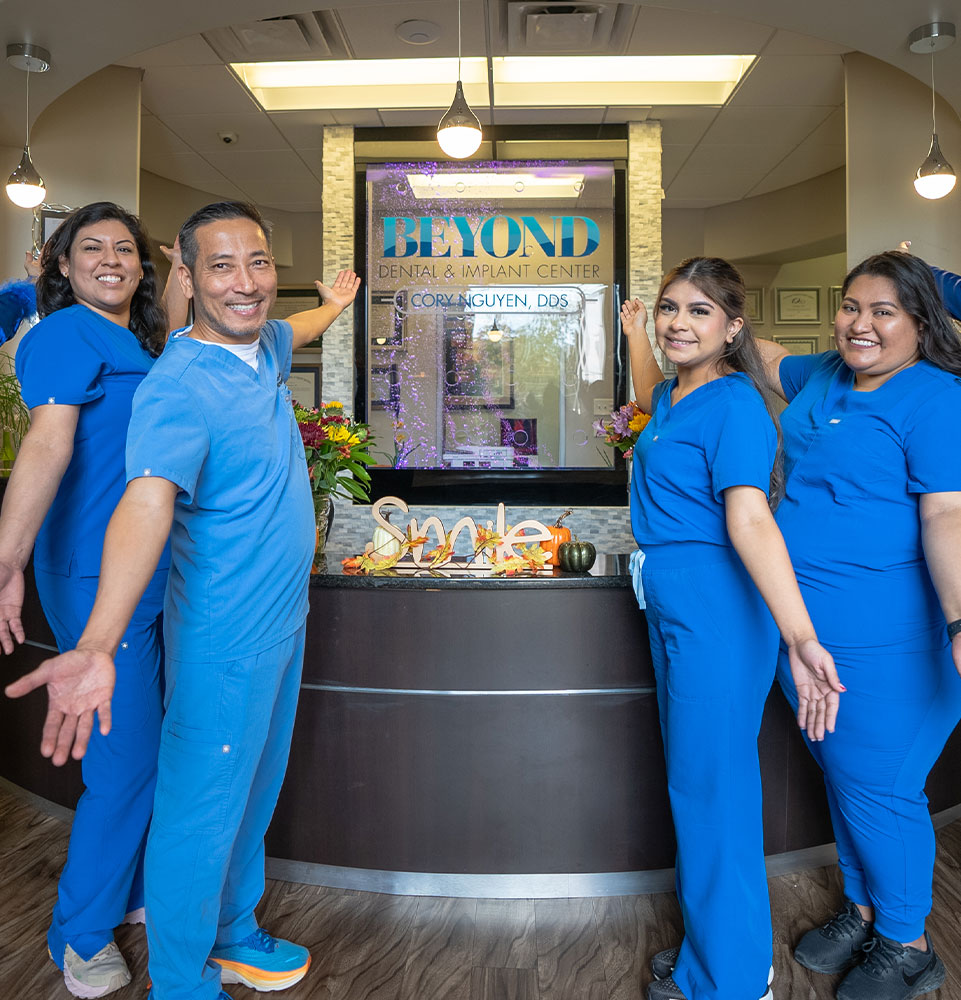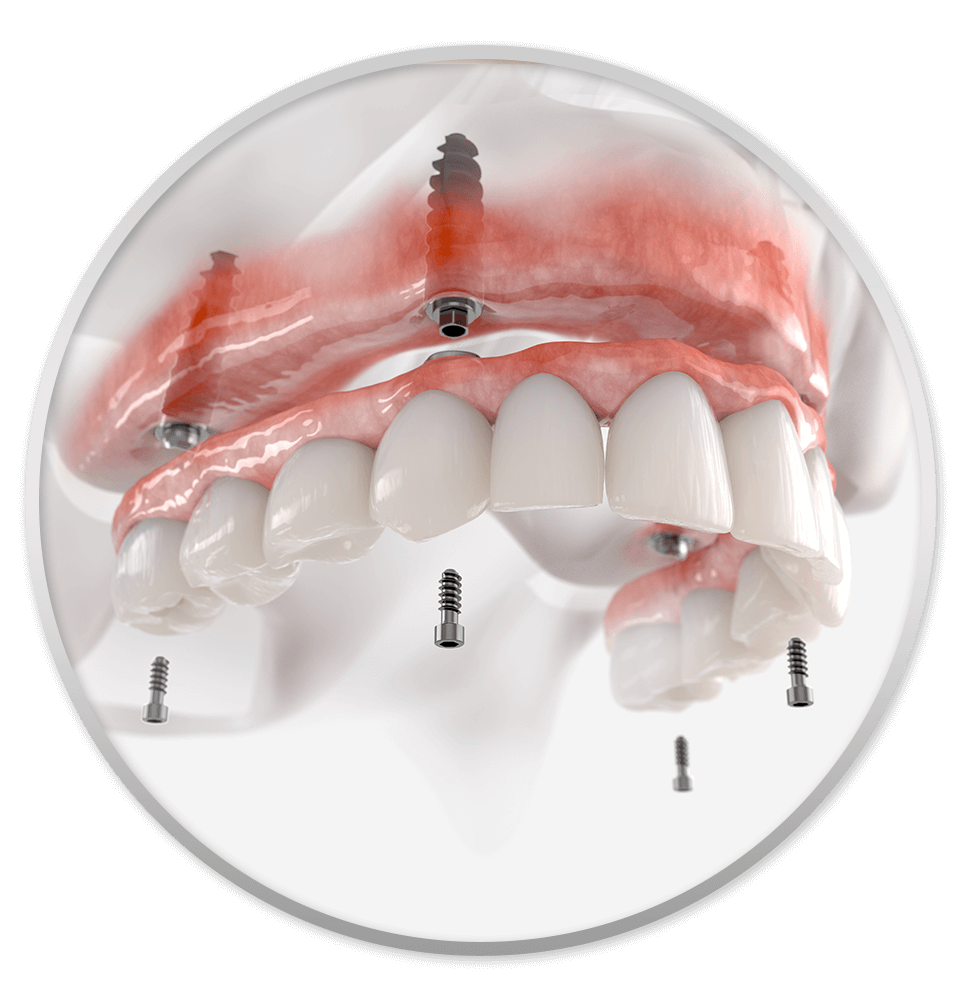Full Mouth Dental Implants - Dallas, TX
Rebuild a Complete Set of Strong, Healthy Teeth


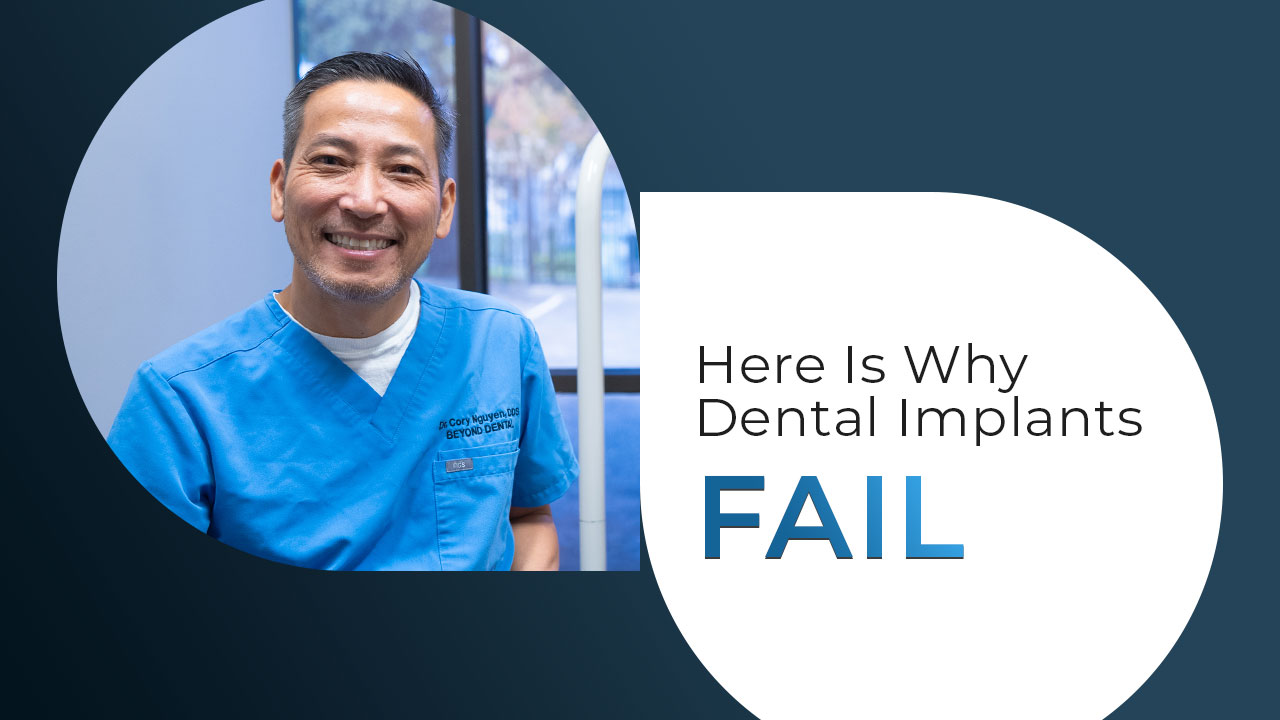
Living with missing teeth or an incomplete smile can affect how you eat, speak, and feel daily. If you’re facing the possibility of losing your teeth, or you’re already struggling with traditional dentures that slip, shift, and limit you to soft foods, you may not feel hopeful about the future of your smile. At Beyond Dental & Implant Center, we specialize in rebuilding smiles with strong, stable, full mouth dental implants in Dallas, TX. Our All-on-X protocol restores upper or lower teeth using a few implant posts placed in the jawbone for a strong, complete smile.
These implants are placed in areas with the highest bone density, allowing maximum stability and support without needing a separate implant for each tooth. This approach simplifies the procedure and enables patients with bone loss to benefit from full arch restorations without extensive bone grafting. We’re proud to offer same-day, immediate-load teeth so you can enjoy a full, beautiful smile that looks and feels natural without the wait!
When it comes to full arch dental implants, there are both fixed and removable options to suit your lifestyle and comfort. Permanently fixed full mouth dental implants are securely attached to the implants and function like natural teeth, giving you lasting stability without needing to remove your teeth. Removable implant-supported dentures, on the other hand, provide secure attachment but can be removed for easier cleaning.
Both options restore a full smile with superior function compared to traditional dentures and enable you to eat a wider variety of foods. Each has pros and cons, and we’ll help you choose the one that best fits your lifestyle, smile goals, and budget.
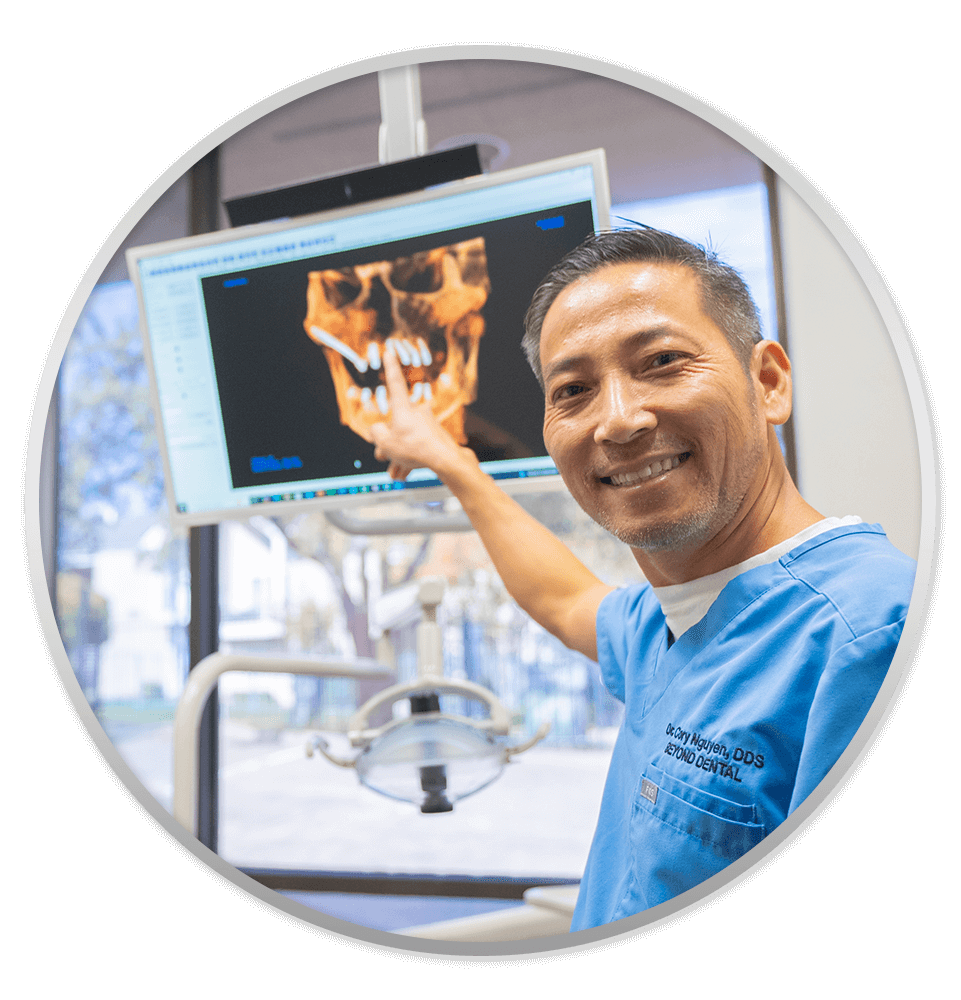
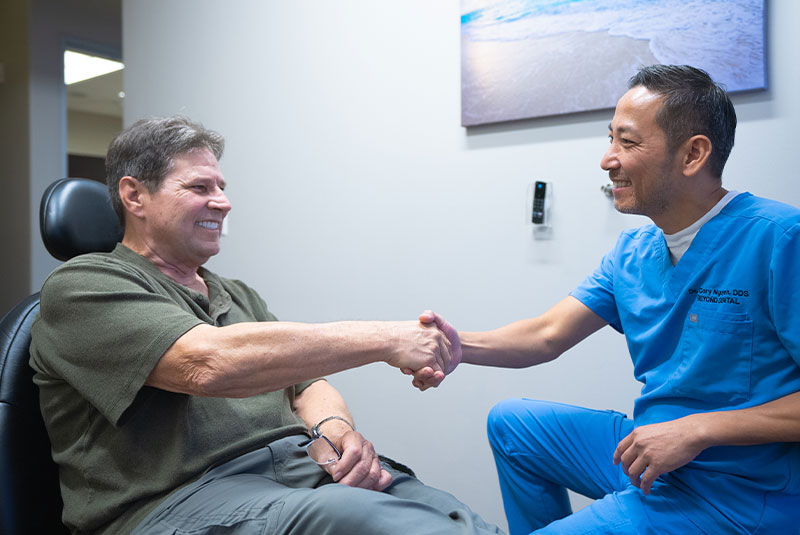
Full mouth dental implants can restore your confidence and comfort if you’re missing most or all your teeth or struggling with uncomfortable dentures. Virtually anyone who needs complete smile replacement is a candidate for full mouth dental implants with our state-of-the-art techniques and options for surgical alternatives such as zygomatic and pterygoid implants.
Ideal candidates should have enough healthy bone structure to support the implants, no active gum disease, and stable enough physical health to tolerate the procedure. A detailed, personalized evaluation is the best way to assess your oral health and determine if full arch dental implants are right for you. Our goal is to create a customized treatment plan for you with comfort and long-lasting results in mind.

We understand that full mouth dental implants are a significant investment, and we’re committed to making this life-changing option as affordable as possible. We proudly offer flexible financing options to make your care more manageable. Restoring your smile shouldn’t be out of reach. Our team will work with you to find the best financial plan for your needs so you can live life to the fullest with a smile that you can keep up!



I understand the information disclosed in this form may be subject to re-disclosure and may no longer be protected by HIPAA privacy regulations and the HITECH Act.
